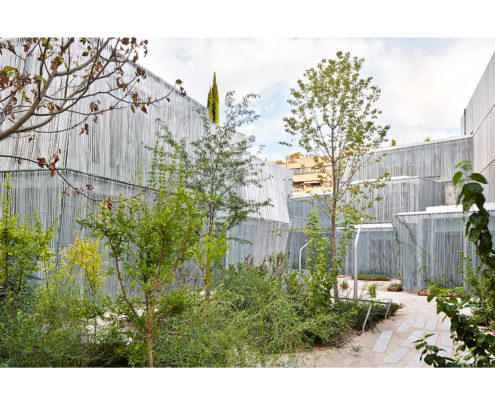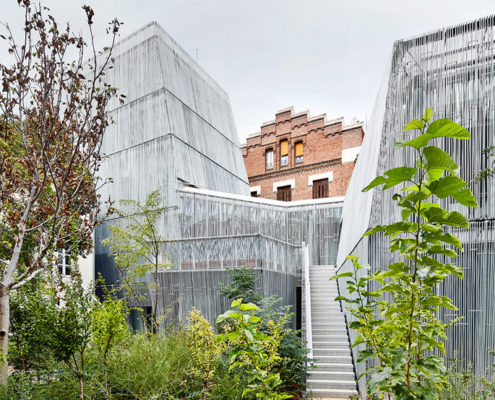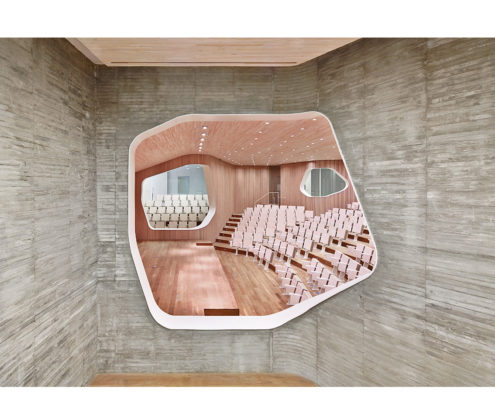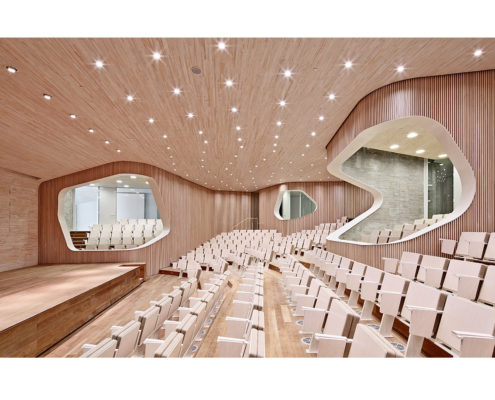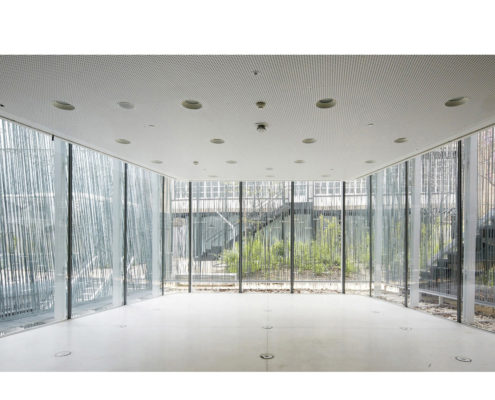Free Institution for Education. Francisco Giner de los Ríos Foundation
Amid Cero9 | Website | 2015 | Visitor Information
In 2003, due to the deteriorating conditions of the Foundation buildings, a process for the rehabilitation and expansion of its headquarters starts with a design competition, whose winners are Cristina Diaz Moreno and Efrn Garca Grinda. Their proposal fully maintains the historical buildings -the house of Giner and Cossio, who existed before the arrival of the institution, and Macpherson Pavilion-. The rest of the buildings are replaced by a series of volumes related to each other through the garden, the space generator of the whole project. The idea of the garden as a "meeting" is preserved and becomes room continuously changing and showing its evolution over the pass of the seasons. A lively and active space recovered thanks to graphic and written documentation and the work of landscapist Teresa GalIzard.
The building remains only as the element that shapes the garden, ceding the center stage to the open space. The rooms of the foundation, both indoors and outdoors, are orientated towards the garden, creating incoming and outgoing shapes. This decision allows dividing the garden into sectors and therefore generating multiple different gardens. These visual cones determine the disposition of the volumes, with the aim of creating spaces with different levels of privacy and exposure.
"The classrooms are multifocal spaces without a predominant direction. They are surrounded by a glass enclosure and flexible hanging systems which permit modifying the interior lightning or acoustic properties with ease. Its geometry replicates the garden plantation system and allows different configurations in order to test with space as an educational tool. The variety of sizes and groups of rooms, as well as possibilities of opening of the building envelope, allows to understand the rooms in perfect continuity with the outside. "
The ideas of the institution are also present in the choice of materials, which have been chosen to be sustainable, durable, frugal and easy to maintain. The outer envelope facing the garden is formed by a metallic lattice which varies the scale of its bars and their capability to act as a sunscreen and visual filter between the classrooms and the outdoor space.
Amid.cero9 defines the extension as a "specialized common wall." The building is constructed as a wall that is deformed to widen and compress along the perimeter to accommodate rooms of different sizes, without physically separating space. This implies that future changes in the condition of use won't be a problem, as the flexible system of the Foundation is friendly towards the change of functions. The height of the previous buildings has remained, leaving under ground the zone for public events. Spaces pour over the main hall, with the ability to open or close, varying the size of the room the audience requires.
"The project aims at the same time to settle into the emotional geography of the Foundation and into its ideology, carefully weaving the relationships between people and their material and intellectual legacy in order to build an evocation of the spirit of the institution without uncritical conservation of the past, recognizing the value and spatial scale of the existing garden and pavilions, but redefining it so confidently and optimistically through a completely contemporary sensibility to help project of the Foundation into the future. "
Information provided in part by: www.metalocus.es

